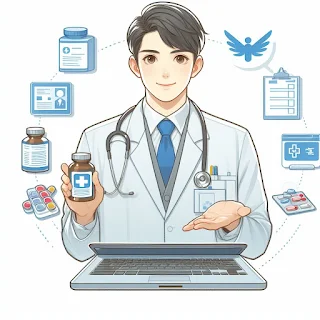Decoding the Role of a Medication Technician
Medication technicians work in pharmacies and healthcare facilities assisting licensed professionals in preparing and administering medications. They play an important behind-the-scenes role in safe medication management.

Medication Technician Career Path
Many medication technicians start by completing a 6-12 month pharmacy technician training program. These programs provide classroom and lab instruction covering pharmacology, dosage calculations, regulations, and more.
Entry-level medication techs work under supervision filling prescriptions, measuring medications, and maintaining inventory. With experience, some advance to lead technician or supervisor roles. Others pursue specialized certifications to advance.
Education and Skills Required
Most employers require completion of a pharmacy technician training program and certification. Strong organization, multitasking ability, computer skills, and attention to detail are essential. Knowledge of medical terminology and measurements is also important.
Medication Technician Salary Overview
According to BLS data, the average annual salary for pharmacy technicians is $36,450. Entry-level roles start around $25,000, while senior medication techs can earn over $50,000 per year. Hospitals and clinical settings tend to pay higher wages.
Recommended Reading
- The Pharmacy Technician: A Comprehensive Approach - Textbook covering all aspects of pharmacy and medication administration.
- Pharmacy Calculations for Technicians - Essential guide for mastering the math skills needed to prepare and measure medications safely.
- PTCB Exam Study Guide 2022-2023 - Helpful test prep resource for the Pharmacy Technician Certification Board exam.
Key Topics in Training Programs
Typical courses include:
- Pharmacy law, regulations, and ethics
- Medication safety and quality assurance
- Pharmacology and drug classifications
- Pharmaceutical measurements and calculations
- Sterile compounding procedures
- Pharmacy management software
- Customer service skills
How to Become a Medication Technician
To start a career as a medication technician:
- Earn a pharmacy technician certificate or associate's degree
- Obtain certification from the PTCB or NHA
- Develop expertise in pharmaceutical calculations and measurements
- Build computer skills and attention to detail
- Consider specializing in sterile compounding or other niche areas
- Apply for pharmacy technician jobs in retail, hospital, or clinical settings
Top Courses and Certifications
Leading medication technician programs include:
- Penn Foster Pharmacy Technician Career Diploma
- CVS Pharmacy Technician Training Program
- Charleston School of Pharmacy Technician Certificate
The PTCB and ExCPT certifications are the most recognized credentials.
Job Application Strategies
When applying for medication technician roles, highlight your training, math proficiency, pharmacy knowledge, and desire to work in a fast-paced, detail-oriented healthcare environment. With dedication and the right credentials, you can begin supporting medication safety and delivery.